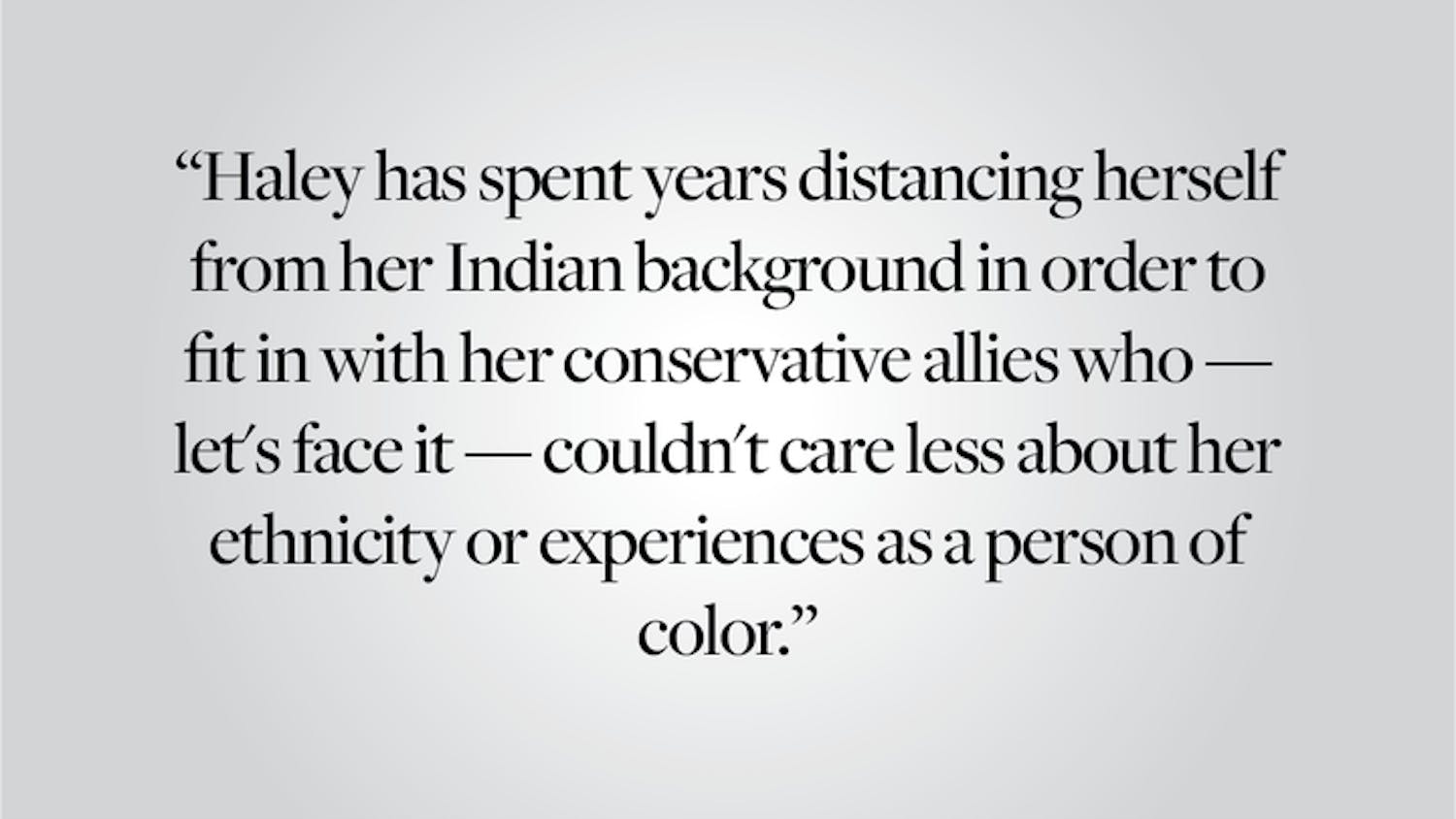Two days after renowned animal rights activist Jane Goodall delivered a lecture to the Brown community, Brown Class Coordinating Board hosted its highly anticipated event Super Heavy Petting. Once a semester, pictures of students holding swaddled bunnies and diapered goats flood Facebook, Instagram and Snapchat (my freshman self is guilty of this, too). The event is marketed as a way for students to unwind during midterms. I will not argue against the scientific evidence documenting the positive effects of animal therapy or against the fact that baby ducklings are adorable. There are, however, some serious problems with this event. Goodall would likely be the first to remind us that our stress-alleviating encounters with these animals most likely stress them out.
Rabbits, for example, are a prey species. Aside from their blunt front teeth, they are relatively defenseless against predators. They are adapted to fear larger creatures that may potentially harm them. Their natural response to unknown stimuli is to try to escape from a potentially threatening situation. Having a rabbit as a pet is one thing. Pet owners build relationships with their rabbits. Pet owners are an integral part of the animal’s routines, rhythms and survival, so the animal does not feel threatened by their presence.
Events like Super Heavy Petting are a completely different story. The rabbits are swaddled and have no escape. They are then handed from one unfamiliar person to another for hours on end. The rabbits are shoved in front of cameras with flash and are exposed to our loud urban campus. There is no way to know what these animals are feeling, but I do not imagine this being a pleasant or relaxing experience for them.
The company Class Coordinating Board employs to bring the animals, Farm Visits, specializes in these types of events, charging $275 per hour. On the company’s website, it notes that it arrives 15 minutes before an event and brings baby animals that will range up to two months of age.
Both of these pieces of information are problematic. Fifteen minutes is not enough time for an animal to acclimate to a new, highly stimulating environment like a college campus. Rabbits are not even supposed to be purchased as pets until they are at least 10 weeks old.
What we don’t see at Super Heavy Petting are the mothers of these young animals who are probably distressed over the separation from their babies.
Some will argue that these animals are used to it, that they are no different than the animals at a regular petting zoo. While petting zoos pose their own problems, the animals there at least have the luxury of consistency. They remain in the same place, with animal companions they are used to. Permanent petting zoos are usually a part of larger zoo institutions that are more strictly regulated by the U.S. Department of Agriculture’s Animal and Plant Health Inspection Service than these small for-profit organizations. Zoos are educational institutions, while these traveling petting zoos are purely for entertainment.
I asked the owner and manager of Farm Visits, Dawn Cordeiro, about her company’s status with APHIS. She had no comment. I contacted the USDA’s Animal Welfare East region office. The representative had a record of Cordeiro requesting the APHIS license application materials, but no record of a completed application or an APHIS license number. While Cordiero boasts over 15 years of experience raising farm animals, operating a traveling petting zoo without an APHIS license violates USDA regulations. The USDA is not holding Farm Visits or Cordeiro accountable for the humane treatment of these animals. Cordeiro refused to comment on the animals’ permanent homes, how Farm Visits makes these situations less stressful for the animals and what happens to the animals over two months of age. There are no pictures of the facilities on the Farm Visits website or Facebook page and no way to know if these animals are safe.
Class Coordinating Board should discontinue Super Heavy Petting events. If full discontinuation is not possible due to popular demand, CCB should instead hire a reputable organization with the proper documentation. If CCB decides to continue Super Heavy Petting, I urge the Brown community to consider the bunnies (or ducklings, or goats). Consider that the interactions at Super Heavy Petting might not be mutually beneficial. Be considerate of yourself and your well-being, but also consider other stress relief tactics during midterms.
Charlotte Tisch ’17 can be reached at charlotte_tisch@brown.edu.




